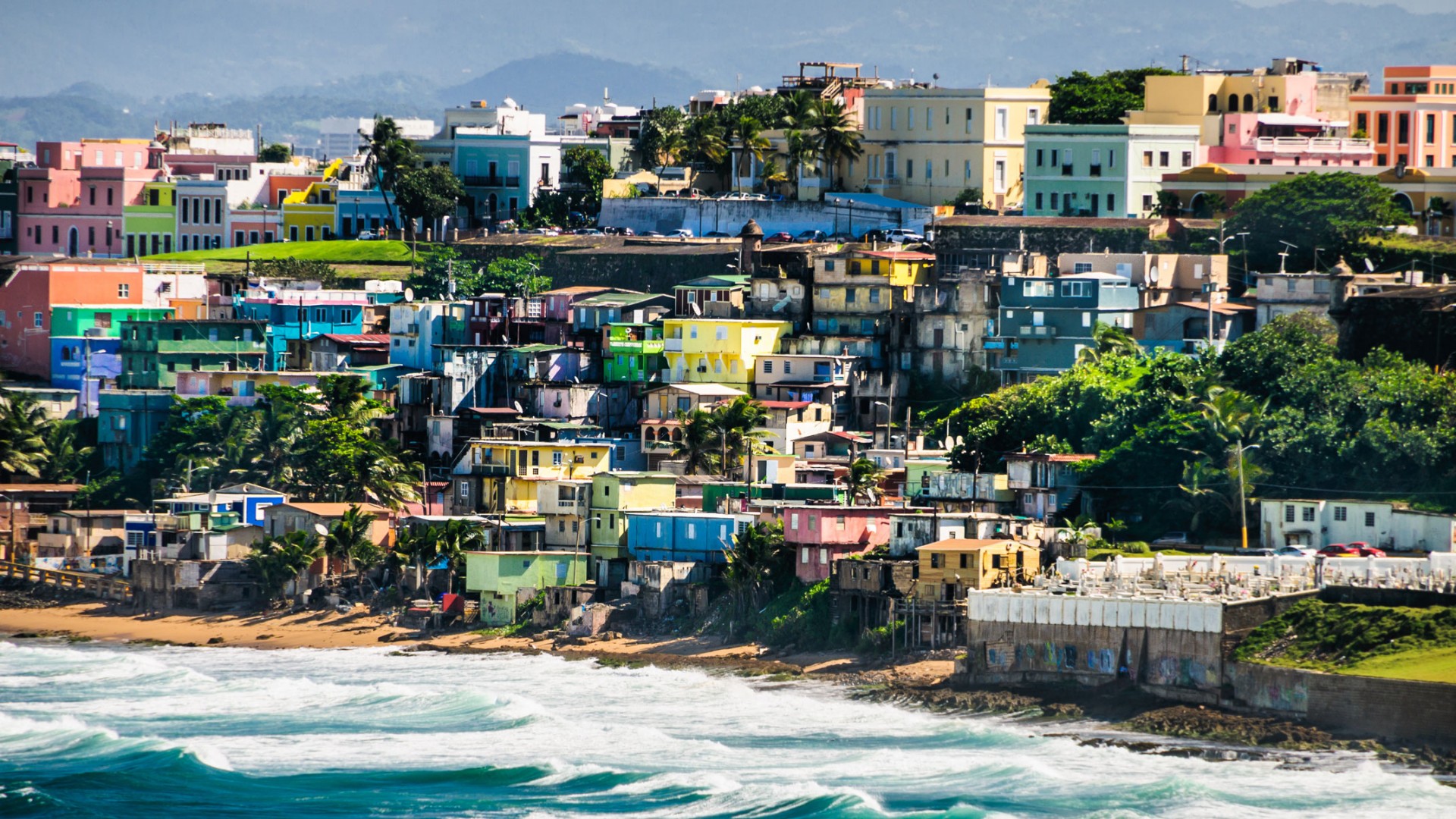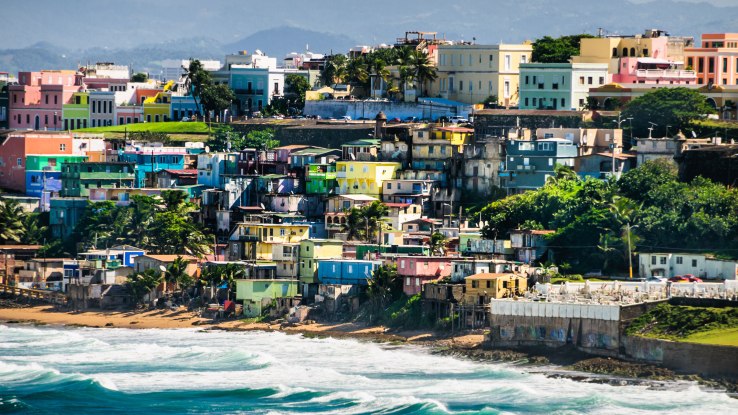Puerto Rico turns to tech and entrepreneurialism to revitalize the economy


The commonwealth of Puerto Rico is steeped in more than $70 billion of debt that has been accruing for the better part of a decade. The local governments irresponsible issuance of bonds and the decision by the U.S. Congress to cut corporate tax breaks have contributed to the current fiscal crisis and subsequent exodus of U.S. companies and Puerto Rican citizens from the island.
To make matters worse, the islands agricultural industry is at a standstill, importing more than 85 percent of its produce. Puerto Ricans also pay two to three times more for electricity than average Americans, due in part to their dependence on oil imports and because the government-owned utility company is plagued with billions in debt.
On June 30, President Barack Obama signed the Puerto Rico Oversight, Management and Economic Stability Act (PROMESA), which creates a committee (consisting of no elected Puerto Rican officials) to oversee the islands finances. Some have criticized the law as a devolution to Americas colonial past.
Former Governor Alejandro Garcia Padilla lobbied heavily for the bills passage and he acknowledged that the commonwealth has a long way to go to recover financially.
As part of its new economic development plan, Puerto Rican officials are looking to technology and entrepreneurship to revitalize the economy, attract its bright minds back to the island and solve the sustainability problems bedeviling the commonwealth.
Attracting businesses back to the island
In 1976, Congress passed Section 936 of the federal tax code, granting U.S. corporations a tax exemption from income originating from U.S. territories. Manufacturers, largely from the pharmaceutical industry, flocked to Puerto Rico to take advantage of these tax breaks.
It was boom time on the island; until the tax incentives phased out in 2006 (Congress voted in 1996 to rescind them), the island enjoyed 28 out of 29 years of economic growth. Since 2005,Puerto Rico has seen negative growth eight out of 10 years and, just as the automotive industry left Michigan, so too fled Puerto Ricos most prevalent manufacturers pharmaceutical companies in droves.
With the exodus of the big corporations, the workers soon followed. Puerto Rico has been experiencing a net population loss since 2005 that accelerated in 2010 as the mainland began to recover from the 2008 recession. According to the Pew Research Center, Puerto Rico had a net population loss to the mainland of 64,000 in 2014, more than double the net loss of 26,000 in 2010. Vices Samuel Oakford reported in April of 2015 that for the first time in history, stateside Puerto Ricans 4.9 million outnumber the 3.5 million who remain on the island.
Technology is certainly one of the pillars of our economic development program.
Puerto Rico is trying to bring back corporations through a series of tax incentives, which have been signed into law since 2008. Two laws in particular, Act 73 (2008) and Act 20 (2012), set a fixed income tax rate of 4 percent for commercial manufacturers and companies exporting services from the island, respectively. A 50 percent tax credit for research and development activity costs has also been instituted under Act 73. According to Puerto Rico Secretary of Economic Development and Commerce, Alberto Bac Bagu, 20% of the companies that operate under [Act 20] are tech oriented and the rest have a tech-related component.
Technology is certainly one of the pillars of our economic development program, wrote Bac in an email to me. As of today, we have a strong tech cluster with examples like Infosys, a global leader in creating breakthrough solutions that address mobility, sustainability, big data, and cloud computing and Honeywell, with a new EMI (electronic magnetic [sic] interference) research lab that alone will create 300 jobs.
Bac also mentioned Truenorth, Rock Solid and Fusionworks as examples of a burgeoning corporate IT sector.
Fostering entrepreneurship
To buoy the tech sector, Puerto Rico is trying to reinvent itself as a knowledge-based economy that will compete globally in part by creating a thriving entrepreneurial ecosystem.
The 2012-2013 Global Competitiveness Report from the World Economic Forum ranked Puerto Rico third in the availability of scientists and engineers. According to Lucy Crespo, the CEO of the Puerto Rico Science, Technology and Research Trust, a public-private trust aiming to turn the island into a tech hub by 2020, Puerto Rico graduates 22,000 STEM students and 60 to 70 percent leave the island.
For many years, our schools and universities prepared our professionals to work for someone else, said Crespo during an interview in the capital, San Juan. So we didnt develop a full ecosystem, we didnt create a culture in which students from the universities thought, you know, gee, how can I become an entrepreneur?
The trust recently established the Technology Transfer and Commercialization Office to help develop and commercialize intellectual property from the islands universities and provideincome tax breaks for researchers working in their grant program.
Bac tells me, While big hitters are important, a new breed of entrepreneurs has flourished, and we have joined forces with our diaspora using their knowledge and network reach to further propel economic growth.
Parallel18, a startup accelerator in San Juan backed by the trust and the government, has reached out beyond the Puerto Rican diaspora, soliciting help from Start-Up Chile founder Sebastian Vidal.
Ducking in and out of a corner office at Parallel18 to check on a presentation from a local P&G executive, Vidal told me that he didnt come here to copy what he did in Chile. Start-Up Chile was more about building a startup community and the entrepreneurs were tasked with going to universities and being like mentors, said Vidal. Parallel18 has those aspects but the focus is more on making an impact with the economy as fast as possible. He acknowledged that the political and economic system is much different from his homeland and there is a short timeline to create a significant, economic impact.
Also staffed by Puerto Rican entrepreneurs returning from abroad, Parallel18 is a five-month accelerator program for companies from around the world and from the island that offers $40,000 equity-free funding with a chance for follow-on funding if qualified alumni decide to establish their company in Puerto Rico. In exchange, entrepreneurs engage with local university students to help foster a culture of entrepreneurialism.
We are creative, hard-working, have great mobility to the U.S. and the world, and are ready to tackle problems and scale outside of the traditional corporate career path.
The program is already starting to bear fruit. Of its first cohort of 36 startups, seven international startups have stayed to continue their businesses from Puerto Rico and 12 local startups are up and running, according to Marie Custodio, spokesperson for Parallel18.
Other startup initiatives include Piloto 151, a co-working space in the colorful Old San Juan district that has partnered with the Founder Institute; ConPRometidos, a social impact incubator and consulting firm; Grupo Guayacan, which since 1996 has been working to develop a private equity and entrepreneurial ecosystem on the island; and PRANS, a community of business leaders from different sectors that donate time to help potential investors evaluate and set up investment projects.
Parallel18 is being used as a vetting source to help bring quality companies to the attention of local and international VCs to create a deal flow a main challenge for the ecosystem.
In general, capital is frozen because of the uncertainty surrounding the [islands] fiscal issues, says Kenneth Kay, an angel investor and founder of the Puerto Rico Capital Network.Despite the challenging environment, I am optimistic that a vibrant startup scene is possible in Puerto Rico.
Kay points to recent tax legislation favorable to venture capitalists, particularly an amendment to allow software as a service (SaaS) companies the fixed income tax rate of 4 percent under Act 73 and Act 185, which provides tax incentives for private equity funds, as moves to help attract investors to the ecosystem.
The government estimates that 790 Act 20 decrees will have been granted by the end of 2016, with 423 projected to have been granted in 2016 alone a sign that this program could be gaining steam among investors.
Sustainability and the future
In August, several Puerto Rican business associations sued the public utility PREPA for proposed electricity rate hikes on an island where its citizens are already paying two to three times more for electricity than average Americans. The strongest factor for the islands high energy costs is that four-fifths of energy used in Puerto Rico comes from petroleum and the island neither produces nor refines crude oil it imports all of it, according to the U.S. Energy Information Administration.
Sustainable energy is key to Puerto Ricos future, Puerto Rico expert and journalist Juan Gonzlez told a crowd at New York University in 2015, the same year the island began to comply with a Renewable Energy Portfolio Standard that forces PREPA to supply 20% of retail electricity sales from eligible green energy resources by 2035.
In September, energization began at the largest solar farm in the Caribbean located on Puerto Ricos northwest coast, and local startups are also taking on the toughest energy issues.
Energy rates arent the only sustainability woes on the island.
For example, San Juan-based TEBS (short for Traffic Energy Bar System) has patented a system that captures kinetic energy from cars passing over a mechanism implanted in roadways and converts it into electrical energy to power nearby street lamps. And Sunne Cleantech Labs, a company that creates solar energy products, recently announced pre-sales of its Sunne Heater, a patent-pending solar water heater.
Energy rates arent the only sustainability woes on the island. In 2015, Puerto Rico imported more than 85 percent of its produce and Puerto Rican-grown rice went on sale in August for the first time since 1989.
The government has taken steps to boost agriculture, including a $4 million investment to help a local university improve soil conditions. But perhaps more promising is that local entrepreneurs are stepping up to tackle the issue.
UAV-IQ uses drones to scout acres and acres of growing area, using multispectral sensors so farmers have better insights into their crops, and eFARM, a social media-inspired e-commerce platform, connects Puerto Ricos organic farmers directly to consumers on the island and around the world.
In an email interview, 16-year old eFARM founder Jos Nolla-Marrero told me he noticed that finding organic and sustainable foods was very difficult and expensive in Puerto Rico and [I] envisioned an app to help find the farms, their products and plan a route to them.
Nolla-Marrero embodies the next-generation Puerto Rican professional that the government is trying to cultivate: The entrepreneur.
I believe we are adopting an entrepreneurial mindset already, wrote Nolla-Marrero. We are creative, hard-working, have great mobility to the US and the world, and are ready to tackle problems and scale outside of the traditional corporate career path.
The enthusiasm in our generation is palpable and contagious. I feel strides have been made and its a path many want to take but may not have had the level of support seen these days.